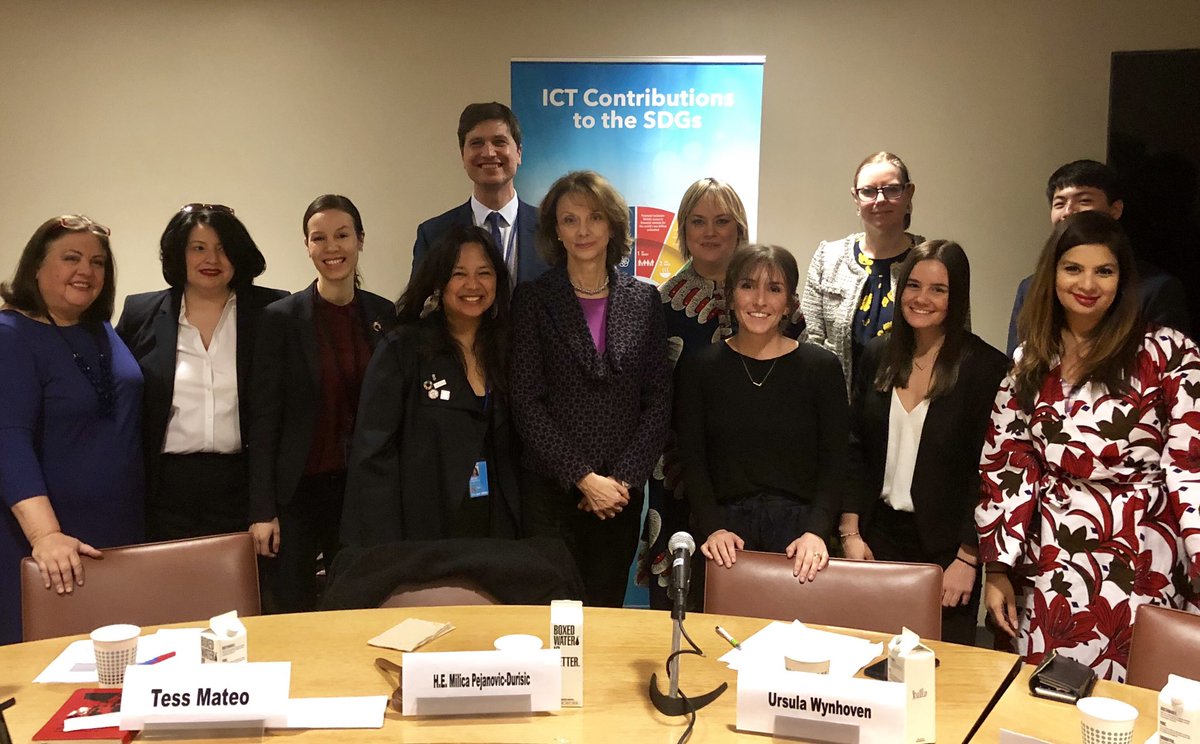
In the digital age, technology and
the digital space reflect existing societal structures and shape poverty and wellbeing
experiences. The UN DESA 2018
Frontier Issues Report noted that despite rapid diffusion and
reduced adoption lags of new technologies, the degree of their intensity and
versality vary across countries. One such disparity is manifested in the
digital gender gap, which stood at 12 per cent globally and 31 per cent in
least developed countries in 2016 when measured by Internet usage levels.
Changes in the digital terrain have
called for a better understanding of the political economy of the digital space,
as more economic, social, political, civic and cultural activities move online.
The impetus for digital inclusion is particularly strong, with some 20
countries making access to the Internet a fundamental or citizen right,
according to the International Telecommunications Union (ITU) Backgrounder, Digital
Inclusion for All.
To reexamine the concept of digital
inclusion and showcase innovative approaches to counter the growing digital
divide, the ITU held an event titled ‘Driving Digital Inclusion: What Does It
Mean and What’s Working?’ on 7 March 2019 at the UN Headquarters.
The Permanent Representative of
Montenegro to the UN Dr. Milica Pejanović‑Đurišić opened
the event remarking that the boundaries between the physical and cyber space
have been waning, while innovations in digital technology have been wideing the
existing digital gap, with unmatched technology-services and inefficient
service delivery models. She stressed that access to digital tools and
technological infrastructure and equipment are linked to access to social
services, with implications for human development.
The panel moderated by the ITU
Representative to the UN Ms. Ursula Wynhoven agreed that the terms of
digital inclusion, such as equality of access, quality of services and benefit
sharing, need to be reexamined to account for tradeoffs and unintended consequences
for various social groups. Tailoring different channels, types and generations
of technology with vulnerable groups can enable them to participate and lead in
the digital sphere.
Turning to the next generation, Mr.
Steve Vosloo, Digital Policy Specialist at UNICEF, and youth
representatives from Stop Cyberbullying Ms. Laina Campos and Mr.
Ulysses Bergel called for special measures to protect young people and
children and ensure their safety and inclusion in the digital environment.
Representing People-Centered Internet, Ms. Parry Aftab underscored that
raising awareness on cybersecurity and digital safety can help counter online
violence and discrimination.
Introducing a gender equality Chrome
extension called ‘Her
Headline’, Junior Professional Officer at UNESCO Ms. Tiina
Neuvonen stressed that technologies can be used and trained to counter inherent
and algorithmic biases. UNESCO also spearheads various digital inclusion
initiatives, such as Internet Universality,
Media and
Information Literacy, and Guidelines on the
Inclusion of Learners with Disabilities in Open and Distance Learning.
Drawing on her experience working in
Lagos, Nigeria, Ms. Dona Sarkar of the Windows Insider Program at
Microsoft highlighted the importance of learning on site and co-creating
technology with the users. She further explained that understanding daily
technological practices and real connectivity experiences are crucial for informing
technology developments. Ms. Lydia Carroon, Business Operations Manager
at the Microsoft Airband Initiative, added that energy access and connectivity
are central to support platform services and to build scalable solutions.
The Managing Director of Cx
Catalysts Ms. Tess Mateo and the Startup Program Manager at IBM Ms.
Melissa Sassi turned the attention to the role of technology in achieving
the SDGs, such as through renewable energy transition, sustainable food value
chain and resource allocation. They pointed that digital and technological
literacy standards can assist people to effectively and responsibly use these
tools and bring about changes in the digital space.
Digital inclusion is also a main
agenda at the fourth annual Multi-Stakeholder Forum on Science, Technology and
Innovation for the Sustainable Development Goals (STI Forum),
which will be held at UN Headquarters in New York from 14 to 15 May 2019 under
the priority theme ‘Science, Technology and Innovation for Empowering People
and Ensuring Inclusiveness and Equality’.
Source: UNSDN
 Welcome to the United Nations
Welcome to the United Nations